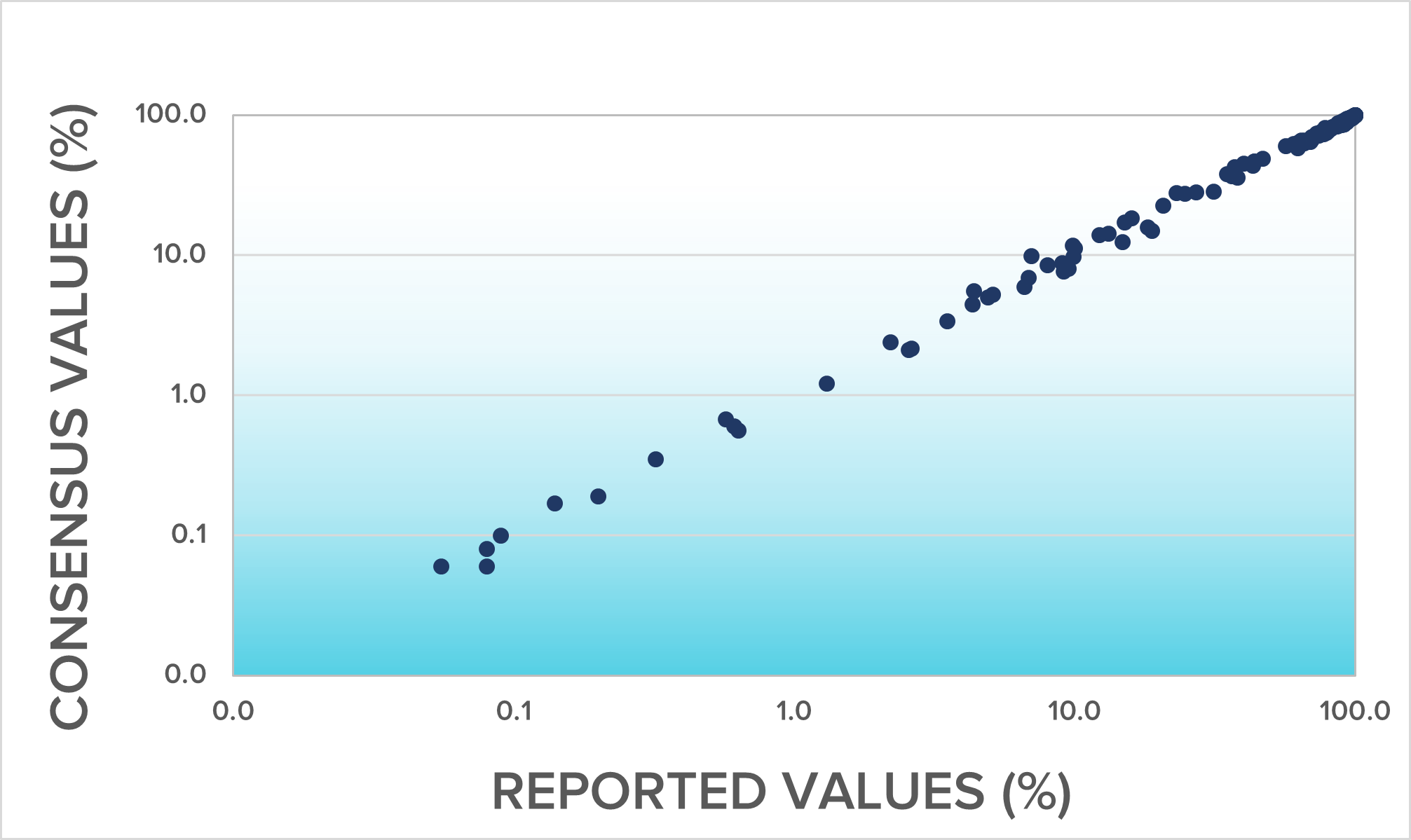External Proficiency Testing as a Proof of Quality and Accuracy
The purpose of external proficiency testing (EPT) is to verify on a recurring basis that laboratory results conform to expectations for the quality required to meet the clinical needs. External quality assessment of chimerism analysis represents not only a key component of JETA Molecular´s quality management, but also a valuable tool to compare results between participating laboratories.
Since its foundation in 2016, JETA Molecular has been participating in multiple EPT schemes including the Post-SCT Chimerism Monitoring Programme of the United Kingdom National External Quality Assessment Schemes (UK NEQAS), American Society for Histocompatibility and Immunogenetics (ASHI) Engraftment Monitoring Proficiency Testing Program, the Etablissement Français du Sang (EFS) Chimerism Interlaboratory Exchange and INSTAND External Quality Assessment.
Chimerism percentage values reported by JETA Molecular in EXTERNAL proficiency testing programs in years 2017-2023 plotted against the corresponding consensus values
Concordance of QTRACE® Results with Consensus Values
Between 2017 and 2023, JETA Molecular has reported the total number of 169 chimerism testing results using the QTRACE® Analysis System. All values reported to the EPT providers were in concordance with the consensus values and none of the results was assessed as critical.
The chart of reported vs. consensus values documents the ability of the QTRACE® Analysis System to consistently deliver accurate chimerism percentage results. The coefficient of determination (R2) is equal to 0.9977.
Performance Chart Displaying Z score
Z score represents a statistical evaluation of performance of laboratories participating in an EPT scheme. It is calculated by subtracting the mean (consensus) value from the reported value in each test, and dividing by the standard deviation.
In general,
• values of Z between -2 and 2 are considered satisfactory
• values of Z lower than -3 and higher than 3 are considered unsatisfactory
• values of Z between 2 and 3 and between -2 and -3 are considered questionable
Z score values obtained for all values reported by JETA Molecular in external proficiency testing programs in years 2017-2020 provide further evidence of the excellent overall performance of the QTRACE® Analysis System.
charts displays the Z-score value obtained for 63 consecutive external proficiency testing samples reported by JETA Molecular in years 2017-2020
The longer-term EPT results of the QTRACE® Analysis System were presented at the ASHI 46th Annual Meeting held on October 19-21, 2020:
Zamostna B., Mak C. and Bost D. (2020): When being average is the goal: Results of longer-term external proficiency testing using the QTRACE® Analysis System
Starting from 2020, JETA Molecular reports chimerism testing results in multiple EPT trials also using the DigitalTRACE™ digital PCR kit. The evaluation of performance of both chimerism testing methods will be presented at the EFI 2022 meeting held on May 17-20, 2022:
Zamostna B., Mak C., Jiroutek P. and Bost D. (2022): External proficiency testing as a tool for evaluation of the accuracy of relative and absolute quantification in chimerism analysis



